Macbeth Read online
Page 20
‘Fleance!’ Banquo screamed in the direction of the house as he unlocked the car in the yard.
‘Do you want us to continue in this downward spiral into chaos and anarchy, Banquo? Our forefathers built railways and schools. We build brothels and casinos.’
Banquo got into the car and hooted the horn twice. The house door opened, and a suited Fleance emerged onto the steps struggling to open an umbrella.
Banquo cracked open the window, presumably because the car was misting up inside, and Duff put his hands on the window and tried to press it down further while talking through the narrow opening. ‘Listen, Banquo. If you do this, if you confess, there’s not a lot I can do for you, you know that. But I promise you no one will be allowed to hurt Fleance. His prospects won’t be those of a traitor’s son but those of the son of a man who sacrificed himself for the town. You have my word.’
‘Hi. Inspector Duff, isn’t it?’
Duff straightened up. ‘Hi, Fleance. That’s right. Have a nice dinner.’
‘Thanks.’
Duff waited until Fleance had got into the passenger’s seat and Banquo had started the engine. Then he set off for his car.
‘Duff!’
He turned.
Banquo had opened his door. ‘It’s not as you think,’ he shouted.
‘Isn’t it?’
‘No. Meet me by Bertha at midnight.’
Duff nodded.
The Volvo was put into gear, and father and son went through the gate into the mist.
15
LADY WENT UP THE LAST metal rungs of the ladder to the door leading to the flat roof of Inverness Casino. She opened it and stared into the darkness. All that could be heard was the mumbled whisper of the rain. It seemed that everything and everyone had secrets. She was about to turn and go back in when a crackle of lightning lit up the roof, and she saw him. He was standing by the edge of the roof and looking down into Thrift Street, at the back of the casino. Before she had persuaded the town council to clean it up, the prostitutes had stood there in the barely lit street and not only offered themselves but often performed their services right there, in the archways, in cars, on cars or up against walls. When the National Railway Network had been here it was said that the boss had had all the windows facing Thrift Street bricked up so that his subordinates could concentrate on work and not the filth outside.
She opened her umbrella and went over to Macbeth.
‘Out here getting wet, darling? I’ve been looking for you. The guests for dinner will be here soon.’ She looked down the smooth black windowless walls like a fortress that led down to Thrift Street. She knew every yard of the street. And that was reason enough to keep the windows bricked up.
‘What can you see down there?’
‘An abyss,’ he said. ‘Fear.’
‘My dearest, don’t be so gloomy.’
‘No?’
‘What would the point of all our victories be if they didn’t bring a smile to our lips?’
‘We’ve won only a couple of battles. The war has barely begun. And already I’m being consumed by this fear. God knows where it comes from. Give me an armed biker gang coming towards me rather than this serpent we’ve slashed at but haven’t killed.’
‘Stop it, my love. No one can catch us now.’
‘Duncan. I can see him down there. And I envy him. He’s dead – I’ve granted him peace – while all he gives me is anxiety and these nightmares.’
‘It’s brew, right? It’s brew that gives you nightmares.’
‘Darling . . .’
‘Do you remember what you said about Collum? You said brew drove people crazy. You have to stop taking it or you’ll lose everything we’ve won! Do you hear me? Not another grain of brew!’
‘But the nightmares aren’t a product of my imagination. The sergeant called me. The deal is done. Or have you forgotten the grave deed we have planned for this evening? Have you repressed the thought that my only father and best friend are going to be slaughtered?’
‘I don’t know what you’re talking about and nor do you. When what’s done is done, there’ll be nothing to brood over. And brew won’t give you consolation or courage. Now your soul will receive its reward. So no more brew! Put a tie on now, my love. And a smile.’ She took his hand. ‘Come on, let’s charm them to pieces.’
Caithness sat in an armchair with a glass of red wine in her hand listening to the rain on the attic window and Kite on the radio. He was talking about the problem of an acting chief commissioner in practice having more power than a democratically elected mayor, all because of Kenneth’s tampering with the town’s laws and statutes. She liked the way he rolled his ‘r’s and his calm voice. Liked the way he wasn’t afraid to shine with his knowledge and intelligence. But most of all she liked the way he was always against something. Against Kenneth, against Tourtell, yes, even against Duncan, who himself had been against so much. It had to be a lonely furrow. And who would want to be lonely if they had a choice?
She had occasionally wondered whether to send an anonymous letter to his radio station, saying how reassuring it was that there were still principled people like him, someone who took on the job of a lone, fearless watchdog. Speaking of which. Wasn’t that the second time she had heard that sound from the front door? She turned down the radio. Listened. There it was again. She crept over to the door and put her ear against it. A familiar creaking sound. She opened the door.
‘Duff. What are you doing?’
‘I . . . erm . . . am standing here. And thinking.’ He had his hands stuck deep down in his coat pockets and was rocking on his much-too-large shoes with the creaking soles.
‘Why didn’t you ring the bell?’
‘I have,’ Duff said. ‘I . . . The bell obviously doesn’t work.’
She opened the door wide, but he still seemed to be caught in two minds.
‘Why so glum, Duff?’
‘Am I glum?’
‘Sorry, I know there’s not much to be cheery about right now, but are you coming or going?’
His eyes flitted around. ‘Can I stay until midnight?’
‘Of course, but come in, will you? I’m cold.’
The sergeant rested his hands on the handlebars of his Honda CB450 ‘Black Bomber’. It was less than five years since he had bought it, and on good days he could squeeze a ton out of it. Nevertheless it felt a bit old now that the Honda CB750 superbike was on the market. He looked at his watch. Sixteen minutes to seven. The rush hour had subsided now, and darkness had fallen early. Waiting beside the road, he could see every single car that came towards the Gallows Hill junction. Sweno had sent them reinforcements from the club down south: three members, cousins they called them, had jumped on their bikes and arrived in town in less than three hours. They were sitting on their bikes, ready, by the pumps at the petrol station on the road along which the car was supposed to be coming. Appraising the models and number plates. Down the road, on the other side of the junction, he could see Colin standing on climbing irons up one of the posts by the junction box. The only entertainment they’d had so far was when they had done a trial run, and Colin had stuck a screwdriver in and turned. Brakes squealed on the road when the lights, without any warning, had changed from green to red. And seconds later, when they had changed back to green, engine revs had risen hesitantly and carefully, and cars crept across the junction while the sergeant flashed his headlights to signal to Colin that things were working as they should.
The sergeant looked at his watch again. A quarter to seven.
Sweno had needed a little time to make the decision, but the sergeant had the feeling that was more for reasons of caution than doubt. And that was confirmed when the three cousins from the south had drawn up in front of the club gate, a Harley Davidson chopper with high handlebars, a Harley FL 1200 Electra Glide and a Russian Ural with a sidecar and mounted machine gun. The guy on the Electra Glide had a sword with him, not curved like Sweno’s sabre, but it would do the job.
Fourteen minutes to seven.
‘Fleance . . .’
Something in his father’s voice made Fleance glance across. His father was always calm, but when something was wrong he had this voice that was even calmer. Like the time Fleance was seven and his father came home from the hospital after visiting Mum and said his name in that same eerily calm way.
‘Change of plans for this evening.’ His father shifted lane, tucked in behind a Ford Galaxy. ‘And the next few days.’
‘Really?’
‘You’re going to Capitol. Tonight.’
‘Capitol?’
‘Something’s happened. You’ll have lots of questions, my lad, but you won’t get any answers just yet. Drop me off at the Inverness, then you drive on at once. Pop home, take only what you need with you and go to Capitol. Drive steadily, not too fast, and you’ll get there late tomorrow. Got that?’
‘Yes, but what—’
‘No questions. You should stay there a few days, maybe weeks. As you know, your mother inherited a little flat. Take the notepad from the glove compartment.’
‘The one-room flat she called the rat hole?’
‘Yes. No wonder we never managed to sell it. Fortunately, I have to say now. The address is 66 Tannery Street, District 6. Right next to the Dolphin Nightclub. Second floor on the right. You’re safe there. Have you written that down?’
‘Yes.’ Fleance tore out the page and put the notepad back in the glove compartment. ‘But I’ll need a key, won’t I? I mean, who’ll let me in if it’s empty?’
‘It’s not empty.’
‘Tenants?
’
‘Not exactly; I’ve let poor old cousin Alfie stay there. He’s so old and deaf he might not open up when you ring the bell, so you’ll have to improvise.’
‘Dad?’
‘Yes?’
‘Has this got anything to do with what Duff was after? He seemed very . . . intense.’
‘Yes, but no more questions, Fleance. You’ll just have to stay there, study some school books you take with you, get bored, but no phone calls, no letters, don’t say a peep to anyone about where you are. Just do as I say, and I’ll send for you when it’s safe to return.’
‘Are you safe then?’
‘You heard what I said.’
Fleance nodded.
They drove in silence, the worn rubbers of the windscreen wipers squeaking and sounding as if they wanted to tell them something.
‘Yes,’ Banquo said, ‘I’m safe. But take no notice of the news from now on, probably just lies. There’s someone else staying there as well at the moment. I think he’s got a mattress on the floor, so you take the sofa. If the rats haven’t eaten it.’
‘Funny guy. Do you promise me you’re safe?’
‘Don’t you worry . . .’
‘The lights are red!’
Banquo jumped on the brakes and almost ended up on the rear bumper of the Galaxy, which obviously hadn’t seen the lights change either.
‘Here,’ Banquo said, passing his son a thick worn wallet. ‘Take the money, then you’ve got enough to make ends meet for a while.’
Fleance took out the notes
‘Bloody long time on red . . .’ he heard his father mutter.
Fleance glanced in the side mirror. There was already a long queue behind them. On the outside of the queue a line of motorbikes was coming towards them.
‘Strange,’ his father said. Again his much-too-calm voice. ‘Looks like the road ahead is on red too. And has been for a while.’
‘Dad, there are some motorbikes coming.’
Fleance saw his father glance in the rear-view mirror for a second. Then he put his foot down on the accelerator, wrenched the steering wheel to the right and let go of the clutch. The old car spun on the wet, oily tarmac, but squeezed out to the right of the queue. The hubcaps hit the high kerb, and both cars screamed as if hurt when the Volvo scraped alongside the Galaxy and knocked off its side mirror as they passed.
A huge roar came from the street ahead. The lights had changed to green.
‘Dad! Stop!’
But his father didn’t stop; on the contrary, he slammed his foot down. They raced into the junction on a collision course with a lorry from the left and a bus from the right. And heard two horns blaring, one from either side, roaring a jarring chord as they emerged from between them. Fleance stared in the mirror as they shot down from Gallows Hill towards the centre, and the painful music sank in pitch behind them. He saw the traffic lights had changed back to green and the motorbikes were already across the junction.
Macbeth stood with both feet firmly planted on the solid tiles at the entrance to Inverness Casino yet still felt he was at sea. In front of him an overweight man in a black suit struggled to get out of the rear seat of a limousine. The Inverness’s red-clad doorman held the car door open and an umbrella in his hand as he hesitated between offering to pull him up or letting him retain his dignity. After the man had finally managed to complete the job without help but with some panting, Lady rushed forward.
‘Our very own . . . my very own mayor!’ She laughed and embraced him. Which was no mean feat, Macbeth thought, hearing himself let slip a silly snigger as he watched Lady’s slender hands grasp Tourtell’s well padded turtle shell.
‘You become more handsome and more virile every time we meet,’ she twittered.
‘And you, Lady, more beautiful and more mendacious. Macbeth . . .’
Macbeth shook hands, fascinated by how the flesh on the mayor’s hand oozed away from under his thumb.
‘And who’s this young man?’ Lady asked.
A brown-eyed, smooth-skinned boy with girlish good looks, so young he must have been in his teens, scurried around the limousine from the rear door on the opposite side. He smiled tentatively at Tourtell as if for help.
‘This, Lady, is my son,’ Tourtell said.
‘Silly billy, you don’t have any children,’ Lady said, smacking the mayor on the lapel of his jacket.
‘My extra-marital son,’ Tourtell amended, stroking the base of the boy’s spine and winking at Macbeth with a chuckle. ‘I’ve only just found out about him, you know. You can see the likeness though, can’t you, Lady?’
‘You are and always will be a sly fox, dear Tourtell. Shall we give him a name?’
‘What about Kasi Tourtell Junior?’ said the mayor, stroking his Salvador Dalí moustache and emitting a booming laugh when Lady rolled her eyes.
‘Get yourselves some refreshment in the warm,’ Lady said.
The two of them went through the door as she came to stand next to Macbeth.
‘How dare he, the perverted pig,’ Macbeth said. ‘I thought Tourtell was one of the respectable guys.’
‘He’s one of the respected guys, and that’s all that counts, dear. Power gives you the freedom to do what you want without people losing their respect for you. At least now you’re smiling.’
‘Am I?’
‘Like an unhinged clown.’ Lady was already beaming at the taxi drawing up to the entrance. ‘Don’t overdo the grin, darling. This is Janovic, a property investor from Capitol.’
‘Another scavenger buying up our factory sites for a song?’
‘He looks at the casinos. Be nice and say hello, and at some point let drop a comment assuring him that street crime is already on its way down.’
Fleance screamed instinctively and ducked when the rear window exploded.
‘How many?’ his father asked calmly and swerved hard to the right, down a cobbled side street. Fleance turned. The roar of the bikes behind them rose in volume like an enraged dragon.
‘Five or six,’ Fleance shouted. ‘Give me your gun!’
‘It wanted to stay at home tonight,’ Banquo said. ‘Hold tight.’ He twisted the steering wheel; the wheels hit the kerb, and the Volvo jumped and cut the corner in front of a posh clothes shop as they turned left down an even narrower street. Fleance understood the strategy: in these one-way alleys at least the bikers couldn’t come alongside and finish them off. But they were getting unremittingly close. Another bang behind them. Fleance hadn’t as yet learned to differentiate between all types of firearm, which he knew his father could, but even he knew that was a shotgun. Which after all was better than –
A hail of bullets hammered against the car body.
– an automatic weapon.
His father executed another sudden turn with authority, as though he knew where he was going. They were well into the shopping area now, but the shops were closed and the streets almost deserted in the rain. Did his father know a way out of this labyrinth? In response Banquo suddenly steered the car to the right, past a sign bearing bad news.
‘Dad, this is a cul-de-sac!’
Banquo didn’t react.
‘Dad!’
Still no reaction, only his eyes staring ahead in deep concentration, his hands clutching the wheel. Fleance only discovered now that blood was running down his father’s face and inside the neck of his shirt, where its white collar, like blotting paper, had assumed a pink colour from the welling blood. And there was something missing from where the blood was seeping out of his father’s head. Fleance shifted his gaze to the steering wheel. That was why he wasn’t answering. His ear. It lay stuck to the dashboard, a small, pale scrap of skin, shreds of flesh and blood.
Fleance raised his eyes to the windscreen. And there he saw, quite literally, the end. The blind alley culminated in a solid-looking timber house. The ground floor was a large partially illuminated shop window. It was approaching fast, and they showed no signs of stopping.
‘Belt on, Fleance.’

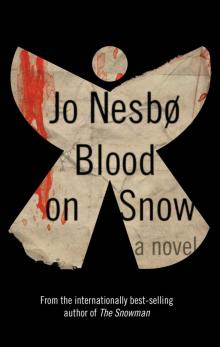 Blood on Snow: A novel
Blood on Snow: A novel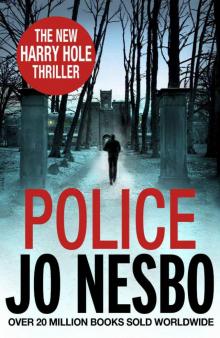 Police: A Harry Hole thriller (Oslo Sequence 8)
Police: A Harry Hole thriller (Oslo Sequence 8) Doctor Proctor's Fart Powder: The Great Gold Robbery
Doctor Proctor's Fart Powder: The Great Gold Robbery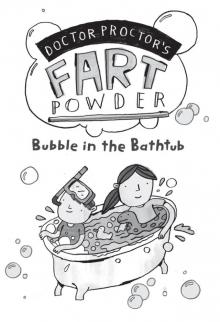 Bubble in the Bathtub
Bubble in the Bathtub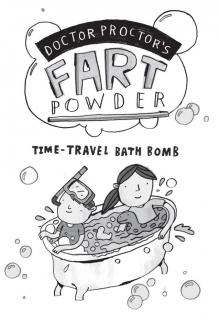 Doctor Proctor's Fart Powder: Time-Travel Bath Bomb
Doctor Proctor's Fart Powder: Time-Travel Bath Bomb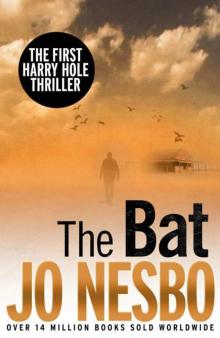 The Bat
The Bat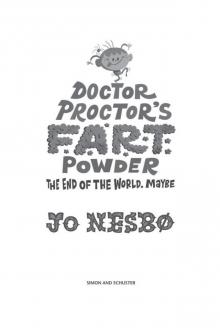 Doctor Proctor's Fart Powder: The End of the World. Maybe.
Doctor Proctor's Fart Powder: The End of the World. Maybe.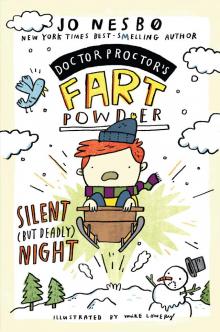 Silent (but Deadly) Night
Silent (but Deadly) Night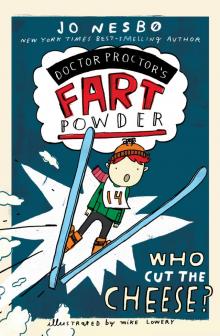 Who Cut the Cheese?
Who Cut the Cheese? Headhunters
Headhunters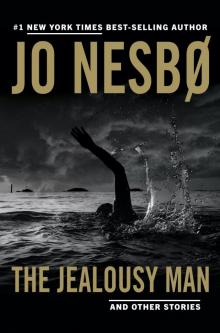 The Jealousy Man and Other Stories
The Jealousy Man and Other Stories Harry Hole Mysteries 3-Book Bundle
Harry Hole Mysteries 3-Book Bundle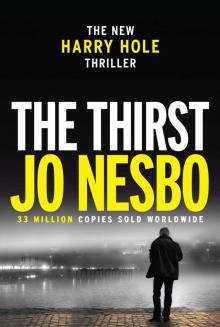 The Thirst
The Thirst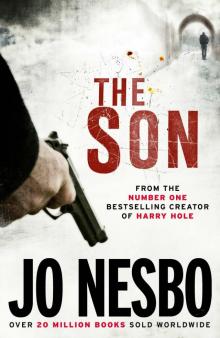 The Son
The Son The Redeemer
The Redeemer The Kingdom
The Kingdom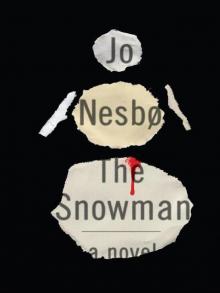 The Snowman
The Snowman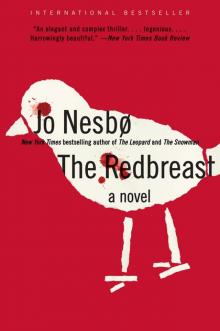 The Redbreast
The Redbreast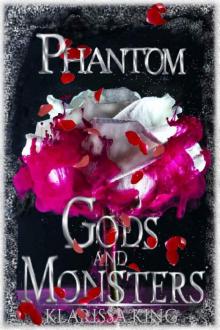 Phantom
Phantom Macbeth
Macbeth The Leopard
The Leopard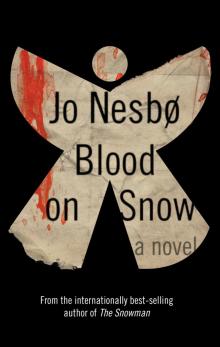 Blood on Snow
Blood on Snow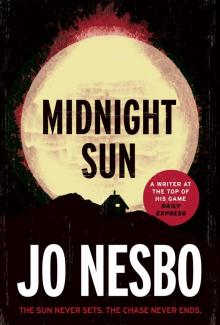 Midnight Sun
Midnight Sun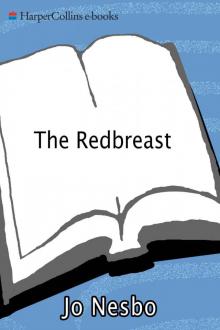 The Redbreast (Harry Hole)
The Redbreast (Harry Hole)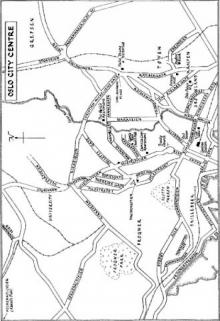 The Devil's Star
The Devil's Star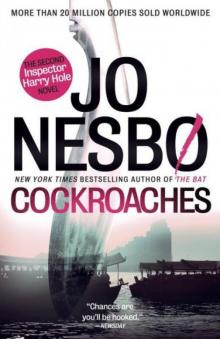 Cockroaches
Cockroaches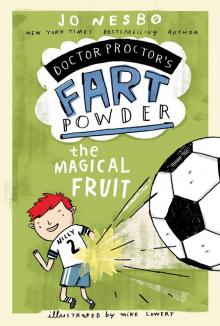 The Magical Fruit
The Magical Fruit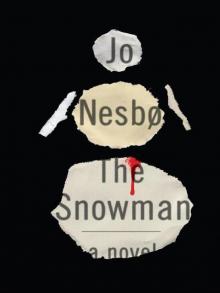 The Snowman: A Harry Hole Novel
The Snowman: A Harry Hole Novel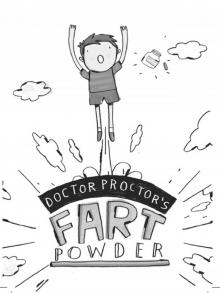 Doctor Proctor's Fart Powder
Doctor Proctor's Fart Powder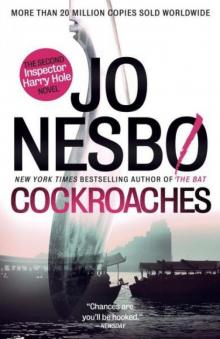 The Cockroaches
The Cockroaches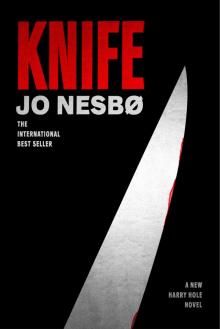 Knife
Knife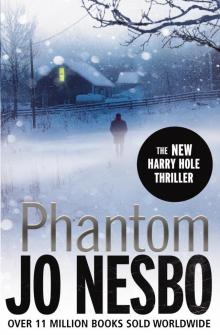 Phantom hh-9
Phantom hh-9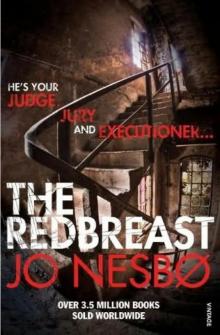 The Redbreast hh-3
The Redbreast hh-3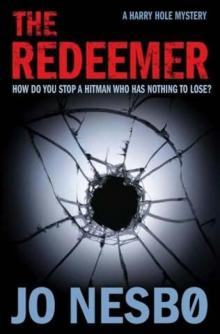 The Redeemer hh-6
The Redeemer hh-6 The Leopard hh-8
The Leopard hh-8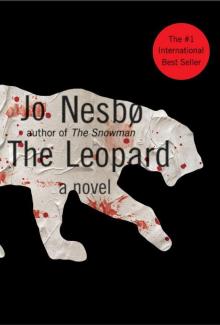 The Leopard: An Inspector Harry Hole Novel
The Leopard: An Inspector Harry Hole Novel The Great Gold Robbery
The Great Gold Robbery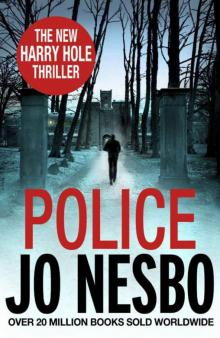 Police hh-10
Police hh-10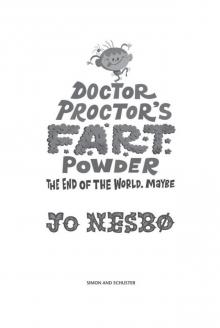 The End of the World. Maybe
The End of the World. Maybe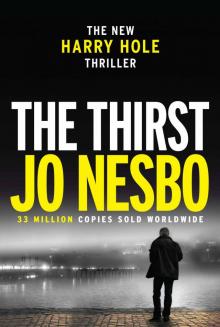 The Thirst: Harry Hole 11
The Thirst: Harry Hole 11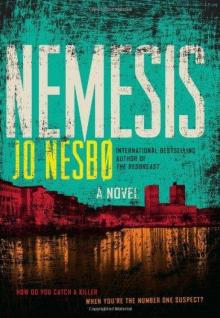 Nemesis - Harry Hole 02
Nemesis - Harry Hole 02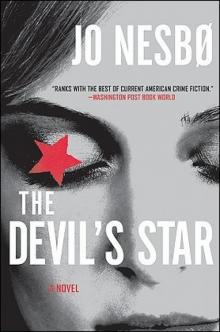 The Devil's star hh-5
The Devil's star hh-5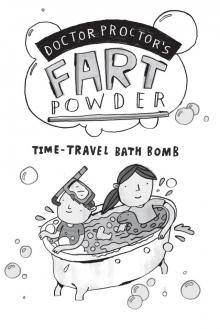 Time-Travel Bath Bomb
Time-Travel Bath Bomb